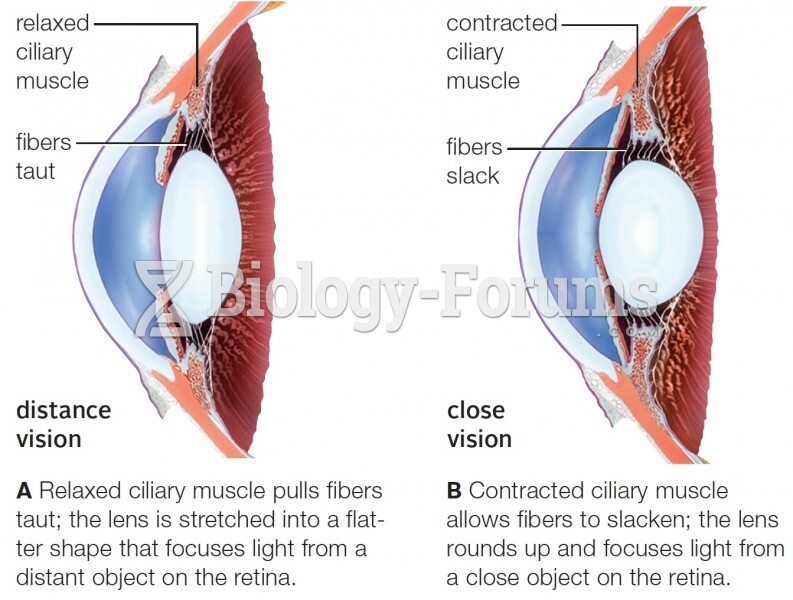|
|
|
After 5 years of being diagnosed with rheumatoid arthritis, one every three patients will no longer be able to work.
The senior population grows every year. Seniors older than 65 years of age now comprise more than 13% of the total population. However, women outlive men. In the 85-and-over age group, there are only 45 men to every 100 women.
Walt Disney helped combat malaria by making an animated film in 1943 called The Winged Scourge. This short film starred the seven dwarfs and taught children that mosquitos transmit malaria, which is a very bad disease. It advocated the killing of mosquitos to stop the disease.
The people with the highest levels of LDL are Mexican American males and non-Hispanic black females.
The U.S. Pharmacopeia Medication Errors Reporting Program states that approximately 50% of all medication errors involve insulin.
 Three principle forms of natural selection: (a) stabilizing selection, (b) directional selection, an
Three principle forms of natural selection: (a) stabilizing selection, (b) directional selection, an
 The ultimate foundation of any political order is violence, no more starkly demonstrated than when a ...
The ultimate foundation of any political order is violence, no more starkly demonstrated than when a ...





